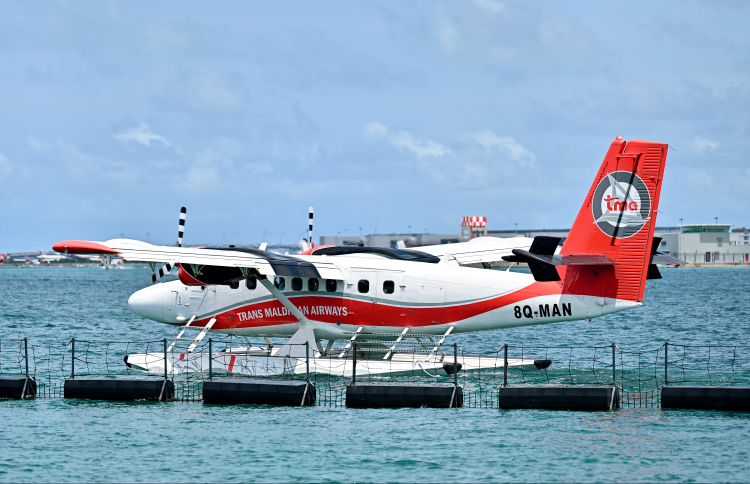Trans Maldivian Airways (TMA) has reversed a recent decision to partially pay employee salaries in Maldivian Rufiyaa, following pushback from pilots who had planned to suspend operations later this month.
A TMA pilot confirmed that the company has rescinded a circular issued last month and will resume paying salaries entirely in US dollars, as previously practiced.
In June, the world’s largest seaplane operator informed employees that, beginning with the July and August payroll cycles, 20 percent of their monthly salaries would be paid in Maldivian Rufiyaa, with the remaining 80 percent disbursed in US dollars. The move sparked internal dissent, particularly among pilots, who formally notified management of their intent to halt flight operations from July 26 if the policy was not reversed.
TMA employs over 200 pilots, with monthly salaries ranging from approximately USD 6,000 for junior captains to as much as USD 12,000 for senior captains.
According to sources familiar with the matter, the partial currency shift was initially introduced to accommodate regulatory challenges related to foreign currency repatriation, as tourism-reliant businesses are now required to channel dollar revenue into Maldivian banks. In response, TMA proposed offsetting some operational costs—such as jet fuel and service fees—in Maldivian Rufiya. However, Maldives Airports Company Limited (MACL) declined the proposal, opting instead to allocate the funds toward employee salaries.
Under amendments to the Foreign Exchange Act implemented in January, Category A tourism operators are required to exchange either USD 500 per tourist or 20 percent of their gross monthly income. Category B operators must exchange USD 25 per tourist or 20 percent of monthly income.
